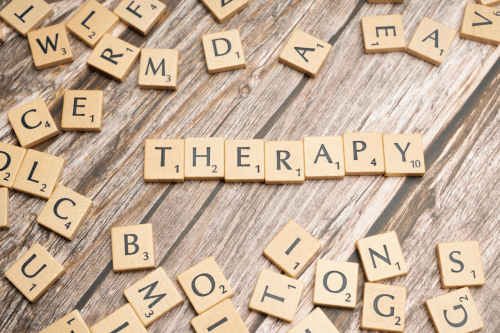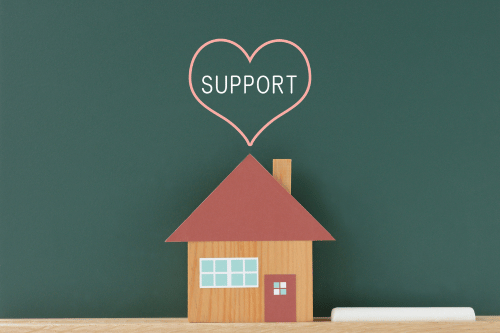

Therapy and addiction are closely connected through structured treatment programs that address the physical, mental, and emotional components of substance dependence. By combining therapy, medication, and behavior change techniques, patients can build the coping skills needed to manage triggers, reduce relapse risk, and maintain abstinence. At Sullivan Recovery in Mission Viejo, our outpatient treatment programs provide a safe space for individuals battling substance abuse, alcohol dependency, or opioid use disorder.
Addiction is a chronic brain disease that alters the regulation of emotion, motivation, and behavior. Substances like alcohol, amphetamine, methamphetamine, and prescription drugs affect the brain’s reward pathways, creating cycles of dependence. These substances impair stress tolerance and social skills, reinforcing patterns of addictive behavior and increasing the risk of relapse.
Through structured education and therapy, patients can gain information about the disease and reduce shame associated with addictive behavior. Programs at Sullivan Recovery focus on lifestyle adjustments, behavior management, and cognitive restructuring to rebuild confidence. Health professionals use diagnosis tools, advertising-free education, and peer support to help patients and parents understand addiction as a treatable condition.
Therapy addresses both the psychological root and behavioral habit behind substance use. Cognitive restructuring, motivational enhancement therapy, and interpersonal relationship counseling help individuals break destructive patterns. Therapies such as meditation, physical therapy, systematic review-backed modalities, and free alcohol counseling increase the efficacy of recovery programs.
Sullivan Recovery uses therapies like art therapy, music therapy, and biofeedback to reinforce emotion regulation and behavior change. In addition to traditional counseling, we introduce patients to lifestyle practices such as yoga and exercise to improve mental health and reduce substance cravings. Therapy encourages empathy, desensitization, skill development, and safe space creation to support sustainable abstinence from harmful substances.

Drug withdrawal is a challenging phase of recovery and often includes emotional and physical symptoms. Patients detoxing from substances such as benzodiazepines, methamphetamine, opiate drugs, or stimulants require medical support and close management. Drug withdrawal therapies are designed to reduce fear, regulate feelings, and provide constant supervision during high-risk phases.
Outpatient programs at our clinic may include MAT drug treatment using medications like buprenorphine, methadone, or naltrexone to manage cravings and reduce withdrawal risk. Sullivan Recovery incorporates motivational tools, contingency management strategies, and peer support to help patients cope with pain and stress during this transition. We also use the transtheoretical model to track progress and adapt treatment goals based on the patient’s stage of behavior change.
Effective coping is essential for long-term sobriety and relapse prevention. Therapy sessions focus on building healthy responses to stress, fear, shame, and emotion. Peer support groups and community-based rehab programs help reinforce these skills outside of the clinic setting.
Many patients entering therapy for addiction also receive a diagnosis of a co-occurring mental health condition such as bipolar disorder. Addressing these conditions is key for achieving stable lifestyle changes. Sullivan Recovery integrates mental health therapy and addiction treatment in one cohesive program.
Motivation often fluctuates throughout recovery. Programs like contingency management and the transtheoretical model of behavior change help sustain engagement through positive reinforcement. Motivational enhancement therapy builds confidence and helps patients define clear, achievable goals.
Addiction impacts the entire family. Our programs include addiction and marriage counseling and family education to improve social skills and understanding between patients and loved ones. Parents of addicted individuals can benefit from free alcohol counseling or drug-specific education programs to support healing.

MAT drug treatment uses FDA-approved medications to support recovery from opioid use disorder and prescription drug addiction. Methadone, buprenorphine, and naltrexone are common choices, each backed by systematic review data showing strong efficacy. These medications reduce cravings, prevent narcotic withdrawal treatment complications, and support long-term abstinence.
A well-rounded program combines therapy with activities that support mental and physical health. Meditation, yoga, and exercise are effective in managing stress and improving mood. Music and art therapy help patients express feelings and develop new skills outside substance use.
For individuals needing structured daytime care, PHP drug treatment (Partial Hospitalization Program) provides a high level of support without overnight stays. These programs combine individual therapy, group counseling, medication management, and life skill development. Sullivan Recovery’s PHP drug treatment tracks offer intensive care while allowing patients to remain active in their communities.

Access to treatment programs is often determined by health insurance coverage. Health insurance helps reduce the financial stress tied to addiction recovery, allowing more patients to access programs like PHP drug treatment and MAT drug treatment. Sullivan Recovery accepts most major insurance plans to make alcohol therapy and substance abuse treatment more accessible.
We help patients and families navigate their benefits and understand their options. Our clinic provides information on how insurance supports therapy, counseling, and medication such as buprenorphine, methadone, or naltrexone. Access to affordable care improves patient experience, enhances program efficacy, and expands support for managing prescription drug addiction, stimulant misuse, and drug withdrawal therapies.
Therapy explores emotional patterns that drive addictive behavior. Emotional triggers often stem from unresolved interpersonal relationship issues, high stress levels, or untreated bipolar disorder. Through desensitization and emotion regulation techniques, patients learn to manage fear, shame, and other triggers that contribute to relapse.
Counseling sessions create a safe space to explore these feelings and reduce emotional reactivity. Programs also include meditation, motivational enhancement therapy, and music therapy to reinforce empathy, emotional stability, and lifestyle transformation. Sullivan Recovery combines therapy with education and skill development to build confidence and encourage long-term behavior change.
Substance abuse treatment involves both emotional support and practical education. Education includes research-based strategies like the transtheoretical model and contingency management to support gradual, measurable progress. Patients gain insight into the long-term effects of alcohol, stimulants, opiates, and other drugs.
Education empowers individuals to manage their behavior and reduces the risk of future substance use. Therapy sessions teach coping skills, emotional regulation, and the root causes of substance dependence. Patients also receive information on safe use of medication, the impact of advertising on substance risk, and the importance of peer support, all guided by experienced health professionals.
Peer support plays a vital role in sustained recovery. Group therapy programs allow patients to connect with others who share similar experiences, reducing isolation and building empathy. Sullivan Recovery’s outpatient model encourages participation in community resources and sober activities.
Addiction causes structural and chemical changes in the brain, especially in areas responsible for motivation and decision-making. Therapy helps rewire these pathways through repetition, behavior change, and social support. Long-term sobriety is linked to brain health improvements over time.
Each patient’s journey through recovery is different. Some benefit most from traditional counseling, while others need music therapy, physical therapy, or biofeedback. Sullivan Recovery personalizes every treatment program based on clinical diagnosis, risk factors, and the patient’s specific goals.
Empathy is essential to the therapeutic process. Patients recovering from alcohol or substance abuse often carry deep feelings of shame, fear, and guilt. Therapists use empathy and understanding to build trust and help patients express their feelings safely.
The transtheoretical model maps the stages of behavior change from precontemplation to maintenance. Therapists at Sullivan Recovery use this model to guide patients through their recovery phase by phase. It supports a nonjudgmental, skill-focused approach to healing.

Patients with dual diagnoses may benefit from both medication and therapy. Conditions like bipolar disorder often require ongoing medication management alongside substance abuse counseling. Our clinic coordinates care between health professionals to ensure consistency in treatment.
Recovery requires an environment where patients feel safe to be honest and vulnerable. Our outpatient rehab center emphasizes privacy, structure, and support, guided by licensed mental health professionals with experience in substance abuse treatment. Therapies such as dialectical behavior therapy and couples therapy promote emotional regulation and reinforce trust during treatment.
A safe space helps patients focus on their goals and process experiences that may have contributed to their substance use. Sullivan Recovery incorporates mental health support and structured coping interventions to ensure patients feel heard, understood, and secure throughout their care journey.
Every addiction has a root. Whether it’s unresolved trauma, stress, a family history of drug use, or social pressure, therapy helps uncover these causes. Dialectical behavior therapy and mental health counseling are used to identify emotional triggers, improve self-awareness, and support behavior change.
Once identified, patients can develop coping strategies to address the underlying triggers and prevent future relapse. Couples therapy may also be integrated for those whose substance abuse has impacted their interpersonal relationships. Our mental health professionals work closely with each patient to ensure these root causes are addressed in a comprehensive, targeted way.
Sullivan Recovery believes long-term sobriety is possible with the right combination of therapy and addiction-focused care. By addressing drug withdrawal symptoms, behavior change, motivation, and emotional regulation, patients gain the tools needed to rebuild their lives. Our outpatient programs in Mission Viejo focus on substance abuse treatment that is personalized, effective, and supported by evidence-based research.
Whether you need alcohol therapy, PHP drug treatment, or dual diagnosis support, our clinic provides full-spectrum care for substance dependence and mental health. We help patients reduce relapse risk, build social skills, and develop healthier lifestyles. Reach out to Sullivan Recovery to learn more about our programs and how your health insurance may cover your treatment.
Topic: Safe environments, trauma-informed care, therapy approaches
URL: https://www.samhsa.gov/trauma-violence-types
Topic: Addiction as a disease, therapy, MAT (methadone, buprenorphine, naltrexone), behavior therapy
URL: https://nida.nih.gov/publications/drugs-brains-behavior-science-of-addiction/treatment-recovery
Topic: Dialectical Behavior Therapy, evidence-based practices, relapse prevention
URL: https://www.ncbi.nlm.nih.gov/pmc/articles/PMC2963469/
Topic: Opioid use disorder, MAT medications, addiction treatment access
At Sullivan Recovery, as an in-network provider we work with most insurance plans, such as:
And More
If you or a loved one are struggling with mental health challenges or substance abuse, reach out to Sullivan Recovery today. Our team of compassionate professionals is here to support your journey towards lasting well-being. Give us a call at 949-836-7180.
Evidence-based therapies like cognitive behavioral therapy (CBT), dialectical behavior therapy (DBT), motivational enhancement therapy, and contingency management are commonly used in addiction treatment. These therapies target negative behavior patterns, emotional regulation, and motivation for recovery. Alternative options like music therapy, art therapy, and biofeedback can also support recovery when combined with clinical care.
In some cases, therapy alone can be effective, especially for patients with mild to moderate substance dependence. However, for conditions like opioid use disorder, MAT drug treatment using medications such as buprenorphine, naltrexone, or methadone is often recommended alongside therapy. A licensed mental health professional can determine the best approach based on diagnosis, history, and severity.
The length of therapy varies by individual but typically ranges from several months to over a year. Ongoing therapy may be needed to maintain sobriety, especially in cases involving co-occurring mental health disorders or relapse history. Programs may start with intensive sessions and taper over time as coping skills improve.
Yes, therapy can be highly beneficial for family members, spouses, and parents dealing with the effects of a loved one’s substance abuse. Services like addiction and marriage counseling and free alcohol counseling offer emotional support, education, and tools to rebuild trust and communication. Family involvement also increases treatment efficacy and reduces the risk of relapse.